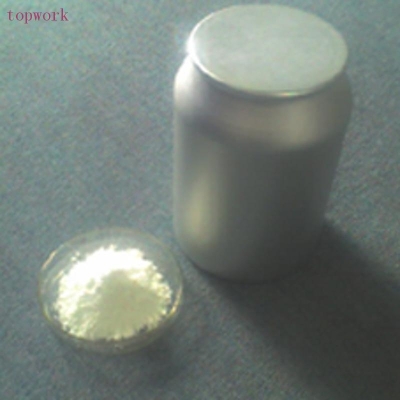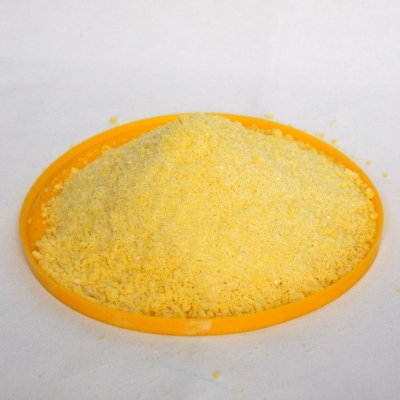-
Categories
-
Pharmaceutical Intermediates
-
Active Pharmaceutical Ingredients
-
Food Additives
- Industrial Coatings
- Agrochemicals
- Dyes and Pigments
- Surfactant
- Flavors and Fragrances
- Chemical Reagents
- Catalyst and Auxiliary
- Natural Products
- Inorganic Chemistry
-
Organic Chemistry
-
Biochemical Engineering
- Analytical Chemistry
-
Cosmetic Ingredient
- Water Treatment Chemical
-
Pharmaceutical Intermediates
Promotion
ECHEMI Mall
Wholesale
Weekly Price
Exhibition
News
-
Trade Service
*For medical professionals only, there
are videos and texts, collect them now!
Indeed, diabetes is a "well-known" disease for Chinese people, so there are often many questions that everyone wants to know
.
This time, the "Medical Endocrinology Channel" invited the medical team of the Department of Endocrinology of the Southern Theater General Hospital to "support" you on the following frequently asked questions about the self-management of diabetic patients!
Question 1: What are the precautions for the use of hypoglycemic drugs?
▎Classification of hypoglycemic drugsDiabetic drugs for diabetic patients are divided into three categories: oral hypoglycemic drugs, glucagon-like peptide-1 receptor agonists (GLP-1RA), and insulin
.
▎Precautions for the use of insulinIn: Insulin is divided into preprandial insulin and long-acting insulin
.
Quick-acting, short-acting and premixed must be injected before eating, and eat
after injection.
Long-acting insulin injections can be done without eating
.
▎How to store insulin when traveling: You can store spare insulin in an insulated bag and carry it with you when
traveling.
Unopened insulin needs to be stored in the refrigerator fresh-keeping layer at 2~8 °C; The ones being used should be stored at room temperature for 28 days, not exceeding 30 °C, away from direct sunlight
.
Problem 2: Home blood glucose monitoring methods
▎ Blood glucose measurement method
9mmol/L, and immediately take 15g of glucose, fruit sugar cubes or sugary drinks
.
After 15 minutes, measure the fingertip blood sugar again, if the symptoms are not relieved, the blood sugar does not rise to the normal range, immediately repeat the sugar, still recurrent attacks need to be sent to the hospital for symptomatic treatment
.
Question 3: What are the precautions for perioperative diabetes mellitus?
▎ The impact of diabetes on surgery Diabetes can increase the chance of misdiagnosis, increase the risk of hypoglycemia, and make surgical conditions more stringent
.
Poor blood glucose control in surgical patients can easily lead to increased surgical complexity, high risk, metabolic disorders, reduced resistance, patients susceptible to infection, poor tissue repair ability, acute and chronic complications, and prolonged hospitalization
.
▎What are the requirements for preoperative blood glucose in diabetic patients, and the preoperative blood glucose concentration emphasizes individualization
.
▎ Preoperative preparation If the patient is treated with oral medicine before surgery, it is recommended as follows ~
Minor surgery:
Large and medium-sized surgery:
stop oral drugs and use insulin
.
If you are taking insulin, your doctor will need to make adjustments
the day before or on the day of surgery.
Want to know more about dry goods videos? Please scan the code and pay attention to Li Jia, an endocrine video number review expert
are videos and texts, collect them now!
"Doctor, you prescribed me so many medicines, are they all used to lower blood sugar? ”
"Doctor, I'm about to have surgery, what should I pay attention to in terms of blood sugar?" ”
"Doctor, I'm about to be discharged, how do I monitor my blood sugar?" ”
.
.
.
.
.
.
Indeed, diabetes is a "well-known" disease for Chinese people, so there are often many questions that everyone wants to know
.
This time, the "Medical Endocrinology Channel" invited the medical team of the Department of Endocrinology of the Southern Theater General Hospital to "support" you on the following frequently asked questions about the self-management of diabetic patients!
The video version and the text version are ready for everyone~
Question 1: What are the precautions for the use of hypoglycemic drugs?
Department of Endocrinology, Southern Theater General Hospital
Answers from the medical team:
Text version answer:
▎Classification of hypoglycemic drugsDiabetic drugs for diabetic patients are divided into three categories: oral hypoglycemic drugs, glucagon-like peptide-1 receptor agonists (GLP-1RA), and insulin
.
- Sulfonylurea, glinide drugs, it is recommended to take oral before meals;
- Dipeptidyl peptidase-4 inhibitors (DPP-4i) and thiazolidinediones are not affected by meals;
- Biguanides are taken with meals;
- α-glycosidase inhibitors are taken
with the first bite of a meal.
▎Precautions for the use of insulinIn: Insulin is divided into preprandial insulin and long-acting insulin
.
Quick-acting, short-acting and premixed must be injected before eating, and eat
after injection.
Long-acting insulin injections can be done without eating
.
To reduce the pain of injection, it is necessary to pay attention to the injection method:
- In order to reduce the pain caused by alcohol stimulation, it is necessary to inject after alcohol disinfection and drying;
- In order to avoid the needle contaminating the injection and avoiding the pain caused by the deformation of the needle tip, the needle should be replaced one by one;
- The injection site needs to be rotated;
- Thin patients pinch the skin
with the thumb and forefinger before injection.
▎How to store insulin when traveling: You can store spare insulin in an insulated bag and carry it with you when
traveling.
Unopened insulin needs to be stored in the refrigerator fresh-keeping layer at 2~8 °C; The ones being used should be stored at room temperature for 28 days, not exceeding 30 °C, away from direct sunlight
.
Problem 2: Home blood glucose monitoring methods
Department of Endocrinology, Southern Theater General Hospital
The medical team answered:
▎ Blood glucose measurement method
Fasting blood glucose refers to the blood glucose measured on an empty stomach for 8~12 hours, before measuring blood sugar, check whether the equipment is complete (blood glucose meter, blood collection pen, blood collection needle, test strip, cotton swab, alcohol), whether the blood glucose meter has sufficient power, and whether the test strip is within the validity period
.
*The test strip is valid for three months after opening, seven days after the alcohol bottle is opened, and one day after the cotton swab is opened
.
Load the lancet into the lancet, adjust to a suitable scale, spare, insert the test strip, the test strip should be kept in a dry, original container, pay attention to protect from light and seal.
Disinfect the tested fingers with an alcohol swab, pay attention to stay for a while after disinfection and wait for the alcohol to dry, the blood collection pen is close to the skin, pay attention to rotating the fingers for each test, select both sides of the finger abdomen to effectively reduce pain, and wipe off the first drop of blood with a dry cotton swab
.
Take the second drop of fingertip blood with the blood glucose meter and wait for the results
of the blood glucose meter at the corresponding time.
Organize your belongings
.
Put the discarded needles in empty bottles and take them to the hospital for disposal
.
Depending on the patient's condition, set different blood glucose targets
Under 60 years old, fasting 3.
9mmol/L, within two hours after meals 7.
8mmol/L,Over 60 years old, fasting 4.
4mmol/L, within 11.
0mmol/L two hours after meals
.
Postprandial blood glucose is equally important as fasting blood glucose, and patients need to keep a record of their blood glucose values
each time.
Starting from the first bite of the meal, two hours to measure blood sugar, it is recommended that the error before and after the time should not exceed half an hour, after eating during the blood glucose measurement period, if there are no special circumstances, do not eat other foods, so as not to have inaccurate
blood glucose values after meals.
9mmol/L, and immediately take 15g of glucose, fruit sugar cubes or sugary drinks
.
After 15 minutes, measure the fingertip blood sugar again, if the symptoms are not relieved, the blood sugar does not rise to the normal range, immediately repeat the sugar, still recurrent attacks need to be sent to the hospital for symptomatic treatment
.
Question 3: What are the precautions for perioperative diabetes mellitus?
Department of Endocrinology, Southern Theater General Hospital
The medical team answered:
▎ The impact of diabetes on surgery Diabetes can increase the chance of misdiagnosis, increase the risk of hypoglycemia, and make surgical conditions more stringent
.
Poor blood glucose control in surgical patients can easily lead to increased surgical complexity, high risk, metabolic disorders, reduced resistance, patients susceptible to infection, poor tissue repair ability, acute and chronic complications, and prolonged hospitalization
.
▎What are the requirements for preoperative blood glucose in diabetic patients, and the preoperative blood glucose concentration emphasizes individualization
.
- Elective surgery is generally less than 7.
8mmol/L on an empty stomach and less than 10mmol/L after meals
.
- If the fasting blood glucose is greater than 10mmol/L, or the random blood glucose is greater than 13.
9mmol/L or the glycated hemoglobin level is greater than 8.
5%, it is recommended to postpone non-emergency surgery, and emergency surgery should be controlled below
13.
9mmol/L.
- Eye surgery is strict, and the patient's blood sugar should be controlled at 5.
8~6.
7mmol/L
.
- In patients with gestational diabetes, blood sugar should be controlled below
6.
7mmol/L.
- Surgery is contraindicated in patients with ketoacidosis and hyperosmolar coma.
▎ Preoperative preparation If the patient is treated with oral medicine before surgery, it is recommended as follows ~
Minor surgery:
- Short-acting oral medication: stop taking on the day of surgery and give it again at dinner;
- Sulfonylureas and glinides: discontinued for 24 hours before surgery;
- Take long-acting oral drugs: the drug should be stopped for one day and taken again the next day;
- Renal insufficiency or use of intravenous contrast: metformin is discontinued for 24 to 48 hours, and regular insulin is used to control blood glucose during discontinuation
.
Large and medium-sized surgery:
stop oral drugs and use insulin
.
If you are taking insulin, your doctor will need to make adjustments
the day before or on the day of surgery.
Want to know more about dry goods videos? Please scan the code and pay attention to Li Jia, an endocrine video number review expert
- Director of the Department of Endocrinology, Southern Theater General Hospital, Doctor of Medicine, Graduate Supervisor
- Vice Chairman of Clinical Endocrine Drug Evaluation Branch of China Medical Education Association
- Chairman of the Osteoporosis Prevention and Rehabilitation Committee of Guangdong Geriatric Health Care Association
- Youth Committee Member of Endocrinology Branch of Guangdong Medical Association
- Vice Chairman of Diabetes Branch of Guangzhou Medical Association
- SCI and core journals have published more than 40 papers
- Editor-in-chief, co-editor and translator of 5 monographs
- In recent years, he has presided over 5 national natural, provincial and ministerial funds
- He has served as a simultaneous interpreter for many conferences
- Reviewer for several SCI journals







